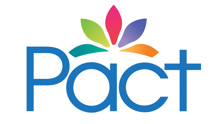03/09/2025
News
What does the Sentencing Bill mean for justice-involved families?
The Sentencing Bill was introduced to Parliament on 2 September, marking an important step toward major sentencing reforms. Building on the sentencing review carried out earlier this year, the government is proposing measures designed to make the criminal justice system more sustainable and to ease the strain on prison and probation services.
Here, we break down some of the Bill’s key proposals and answer frequently asked questions…
Why is this happening?
The prison population has nearly doubled over the past 30 years, and projections suggest that we will be 9,500 prison places short by 2028. While the government is continuing to invest £4.7 billion in prison building, there is an urgent need to address the crisis and stop prisons running out of space for individuals who pose the most serious risk to the public.
When will these changes happen?
Nothing will happen immediately. The Bill still needs to pass through several stages in Parliament. Changes are unlikely to start until early 2026. In the meantime, prisons and probation services will start making plans to ensure a smooth transition when the changes come into effect.
Earlier release for some people in prison
If your loved one is serving a standard determinate (fixed length) sentence, they could be released earlier. People in prison who demonstrate good behaviour could be released at one-third of their sentence rather than 40-50%.
While you may see your loved one return home sooner, they will be under strict probation supervision in the community and will need to follow certain rules.
The changes will not apply to people serving extended determinate sentences (EDS) or life sentences.
A new three-stage “earned progression” system
People in prison will be released earlier through “earned progression”, whereby they complete work and training and demonstrate good behaviour.
The Bill proposes that sentences will have three phases:
1. Prison time – initial period served in custody.
2. Community supervision – stricter monitoring immediately after release.
3. Licence period – continued supervision with the risk of being recalled to prison if rules are broken.
Your loved one may be subject to electronic tagging or curfews during the time they serve in the community.
If your loved one is serving a current Standard Determinate Sentence for a serious offence, they will not be entitled to early release. They may still need to serve 50% or two-thirds of their sentence in custody (Sentencing Bill section 20(4)).
Under the Bill, anyone convicted of a serious violent or sexual offence will be given an Extended Determinate Sentence (EDS - fixed-term sentence of more than four years) or Sentence for Offenders of Particular Concern (SOPC). This does not apply to current prisoners; it only applies to those sentenced after the law changes.
More use of community alternatives to custody
Custodial sentences of less than 12 months will only be used in exceptional circumstances. Instead, courts will use community-based punishments, such as suspended sentence orders, curfews, fines, or restriction zones.
Courts will consider short sentences for exceptional circumstances such as non-compliance with court orders, domestic abuse cases where the victim needs respite, or people who reoffend while on community orders.
Courts will also be able to give Suspended Sentence Orders (SSOs) for up to three years (rather than two). They would be used for those deemed low risk, such as people with substance abuse issues or pregnant women.
Fewer people going to prison for short periods should reduce family disruption and help people with convictions to stay employed or maintain housing while under supervision in the community.
Greater use of technology and tagging
The Bill proposes greater use of electronic monitoring (tagging), both to track people and to enforce conditions like curfews or exclusion zones. Increased tagging means more people serving part of their sentence at home or in approved accommodation rather than in prison, but they will be closely monitored.
Changes to recall rules
The number of people recalled to prison has more than doubled over the seven-year period from March 2018 to 2025.
The Bill proposes a new model for recall for those serving standard determinate sentences, whereby it is only used for "consistent non-compliance with licence conditions" or "specific and imminent risk". There will also be a longer Fixed-Term Recall (FTR) period to reflect this more serious non-compliance and risk, replacing short-term recalls.
We hope that if recall becomes fairer and more predictable, individuals and their families will face less uncertainty and anxiety.
Chemical castration of people convicted of sex offences
A huge deal of media focus during the Independent Sentencing Review was on voluntary chemical castration for people convicted of serious sexual offences. The Sentencing Bill itself does not mention chemical castration at all. However, the topic is being addressed indirectly through recommendations from the Review and statements from the government.
Protecting the needs of victims and survivors
As a victim or survivor, you will naturally be concerned about what these changes will mean for you and your family. Under the Bill, sentences will explicitly recognise domestic abuse factors when considering sentence severity and supervision conditions. Courts will also have tools beyond custody to restrict and monitor offenders (see ‘greater use of technology and tagging’ above).
Where can I find support and advice?
Pact runs the Prisoners’ Families Helpline on behalf of HMPPS. The team can respond to your questions and concerns and advise on supporting you and your loved one during their sentence or trial. You can call on 0808 808 2003 (freephone) or email info@prisonadvice.org.uk.
Victim Support is a charity dedicated to providing free, confidential support to victims of crime and traumatic incidents in England and Wales. You can call them on 0808 16 89 111 or find out more at https://www.victimsupport.org.uk/.
If you have a loved one in prison, you can find your local Pact Family Services team here: Prisons
We will be updating this article as the Sentencing Bill progresses - bookmark it so you can return to it later.

